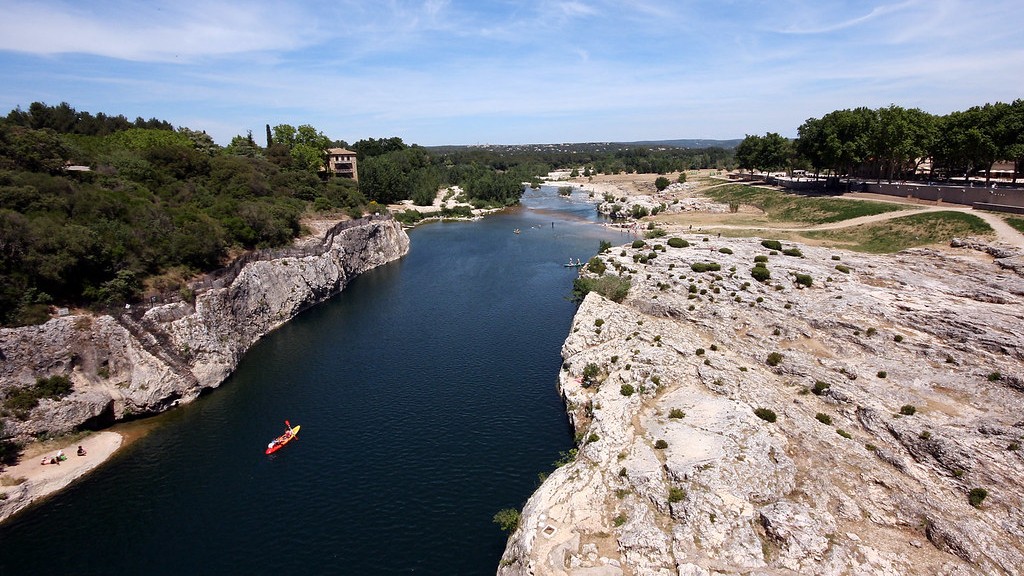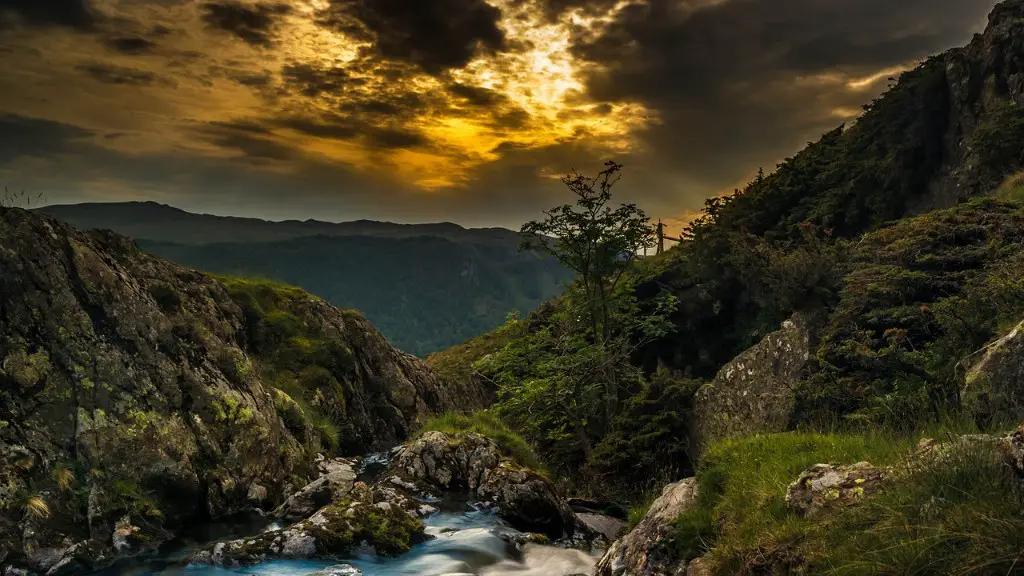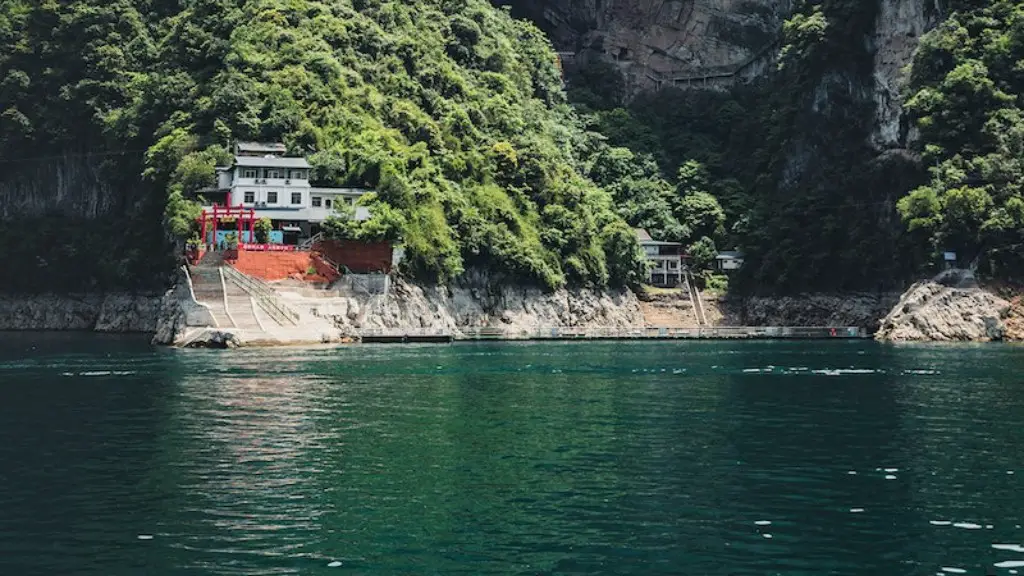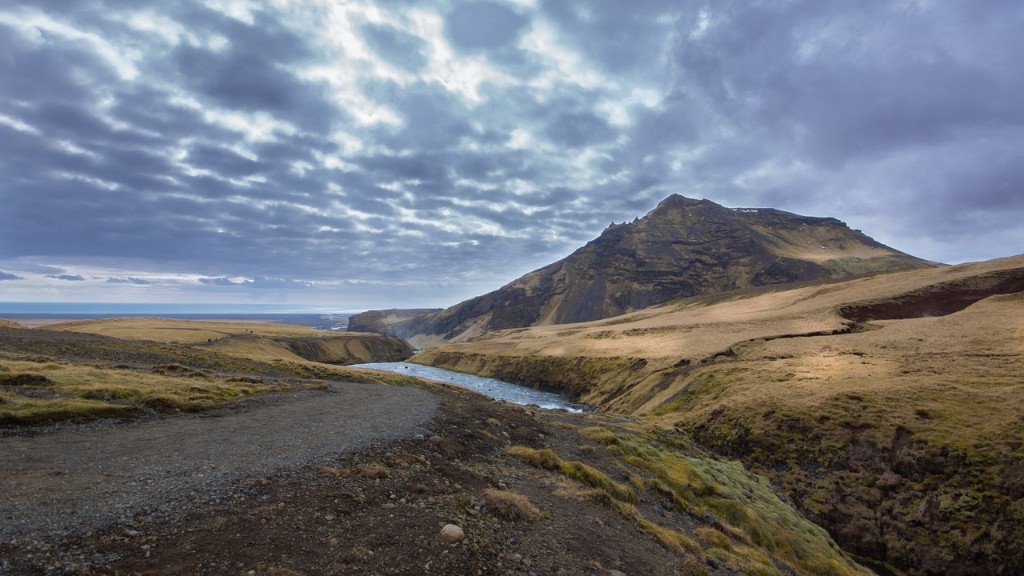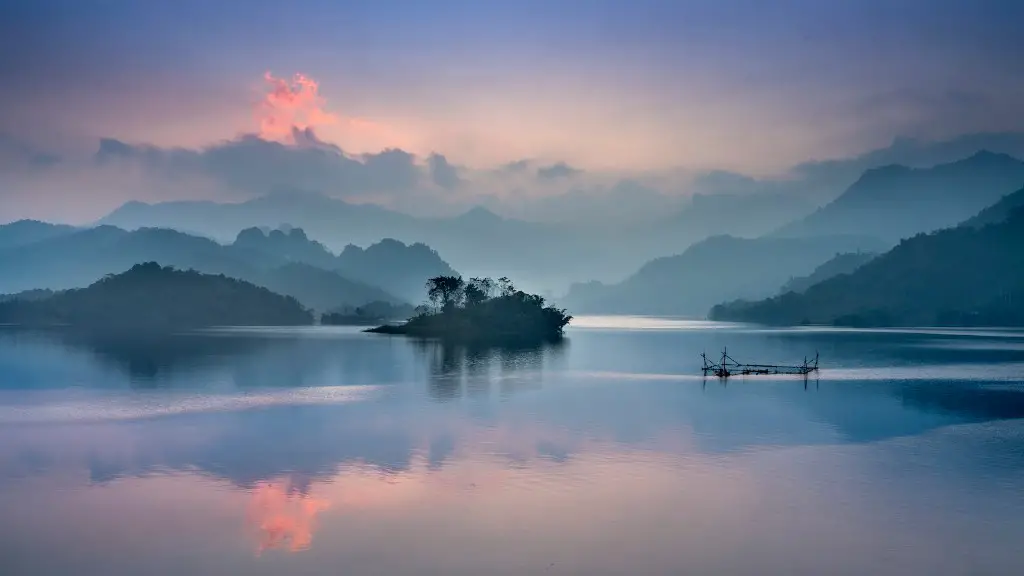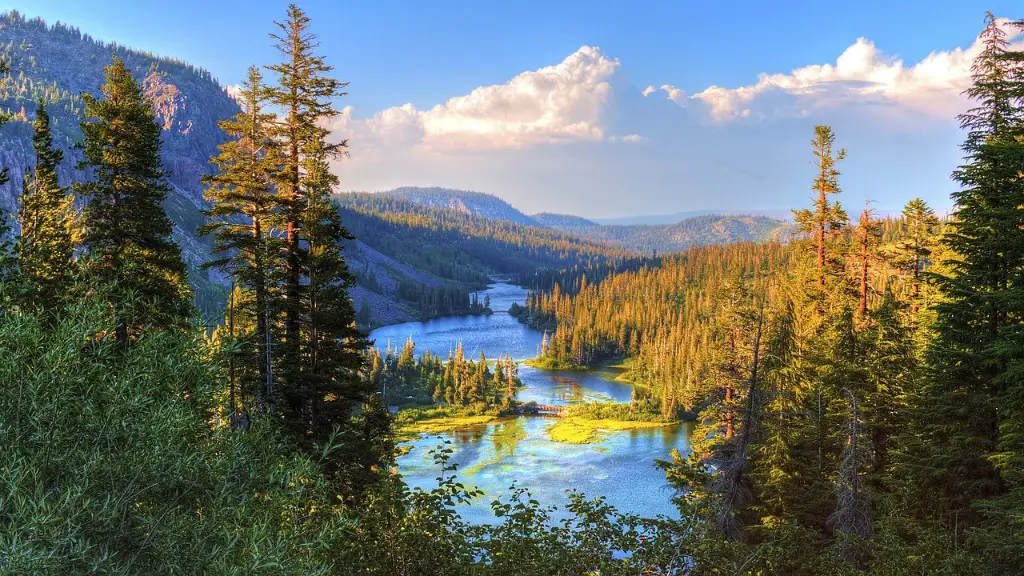The Nile River, the world’s longest river, flows through the north of Egypt and impacts the lives and livelihoods of millions of people along its banks. Its waters provide life in the desert and people rely on the river’s capabilities for irrigation and development, industrialization and commercialization. But is it safe to drink the water from the Nile River?
The answer to this question is both a yes and a no. Yes, some of the water flows through the river are suitable for human consumption depending on the level of treatment, however some of the water that runs through the Nile River is potentially hazardous to humans and cannot be consumed without proper purification.
The main sources of contamination in the Nile River are the result of inefficient sanitation systems, agricultural runoff, and industrial wastes. The latter two are the main cause of river pollution and a major issue on the thirst of people who live along the Nile. Additionally, the growth of the population in the area has resulted in increased consumption of available water, resulting in increased contamination due to the dilution of pollutants.
According to experts, the most important point when evaluating the safety of drinking water from the Nile River is to check for the presence of pathogens. This means that the water must be tested for e.coli, coliform bacteria and other microorganisms that can cause disease. Additionally, pollution from industrial and agricultural runoff is also a concern, as it can contain heavy metals and chemicals that can be detrimental to human health.
It’s important to keep in mind that the water from the Nile River does not always conform to international standards for drinking water and for this reason, it’s best to avoid consuming the water directly. While public authorities in Egypt routinely test the water and put in place safety regulations, drinking water directly from the river is not advised.
Fortunately, there are different ways to guarantee safe and clean drinking water in Egypt. The most common practices include boiling the water, treating it with chlorine or iodine, and using a filter. Boiling is one of the most straightforward and effective ways to purify water and guarantee that it is safe to drink.
Ultimately, the answer to the question of whether or not it is safe to drink the water from the Nile River depends on individual circumstances and is always subject to scrutiny. As with most places in the world, it is important to research and make informed decisions about what is best for your health and safety when it comes to drinking water from the Nile River.
Treatment Options for Water from the Nile
One of the main ways to ensure that water from the Nile is suitable for human consumption is through treatment. This involves a range of techniques that can be used to remove or reduce contaminants from the water. Common treatments include filtration, chlorination, ozonation, and ultraviolet radiation to remove chemicals, bacteria, and other contaminants.
Treatment of water from the Nile is also possible through other methods such as sand filtration, membrane filtration, and reverse osmosis. While these methods are often associated with higher cost and a lack of availability, they can provide some of the most reliable and thorough means of removing contaminants from water.
Treated water from the Nile is safe to drink and can help to ensure a safe and healthy supply of drinking water for those who live along the river and those visiting the area.
Government Intervention Against Nile Pollution
Egypt has put in place strategies and regulations as part of its commitment to restoring the Nile to a state that is sustainable in all aspects, including quality of water and biodiversity. This includes the implementation of relevant legislation, such as the Law on Wastewater, which outlines provisions for pollutant discharge and is part of an overarching framework for water resources management in the country.
In addition to this, the government has also employed a range of other initiatives to tackle river pollution, such as improving the efficiency of sanitary systems, establishing sewage treatment plants and targeting agricultural runoff through use of best management practices.
The government has also built up a network of monitoring stations throughout the country which measure the level of contaminants and provide information to help inform water policy decisions.
Overall, the government of Egypt is taking an active role in tackling the problem of river pollution in the Nile River.
Potential Impact of Pollution in the Nile
The river pollution in the Nile River poses a real threat to the health and wellbeing of people living around the river and those who use the water for irrigation and other activities. Contamination of the Nile can have significant economic and health implications as it is the main source of water for many people in Egypt.
The health risks associated with river pollution are substantial and include increased risk of infectious diseases such as cholera and typhoid, due to the presence of harmful bacteria and other contaminants in the river. Additionally, the contamination of the river can also have an impact on agricultural production due to the presence of chemicals and other pollutants in the water.
It is clear that pollution in the Nile River can have a negative impact on the health and wellbeing of people living in the area and its resources. For this reason, it is essential to prioritize the reduction of river pollution in order to ensure the safety of the water and guarantee a healthy future for the people along the banks of the Nile.
Future of the Nile
The Nile River is an incredibly important natural resource for Egypt and the entire region, supporting a variety of activities, from agriculture to transportation, industrial production and even tourism. For this reason, it is essential to ensure its sustainability and the reduction of pollution.
In recent years, there has been a shift toward alternative sources of water and a growing emphasis on understanding and protecting the Nile River. With increased public awareness, the commitment of the government, and the implementation of best management practices, the future of the Nile is beginning to look brighter.
Although the river remains polluted in some areas, there is hope that the situation can be improved. If the right measures are taken, the water in the Nile will eventually become safe and clean enough to drink.
